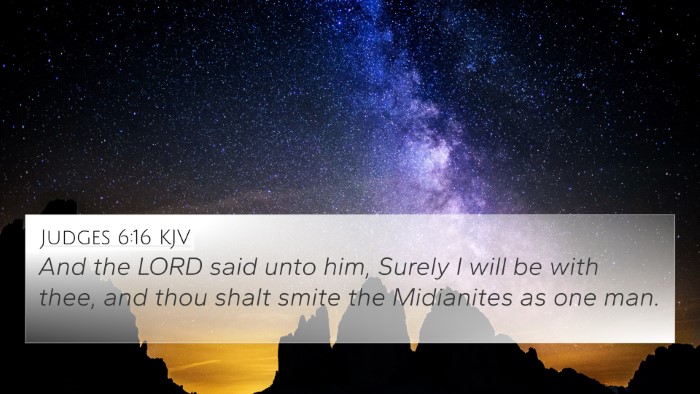Understanding Numbers 14:15
Numbers 14:15 states, "Now if you will kill this people as one man, then the nations which have heard of Your fame will speak, saying..." This verse is a poignant moment where Moses intercedes for the Israelites after their rebellion against God.
Contextual Background
This passage occurs after the twelve spies had been sent to explore the land of Canaan. Ten of them brought back a discouraging report that incited fear among the people, leading them to rebel against God's promises. In this context, Moses appeals to God’s reputation among the nations. He emphasizes that if God destroys the people, it would reflect poorly on God's character and glory.
Commentary Insights
- Matthew Henry: Henry highlights Moses' role as a mediator and notes the weight of intercessory prayer. He articulates that Moses is appealing to God's honor – that God's intentions should not bring reproach to His name.
- Albert Barnes: Barnes discusses the implications of God's intended actions and how they would affect the nations around them. He emphasizes the idea that God's dealings with Israel demonstrate His character to the watching world.
- Adam Clarke: Clarke elaborates on the severity of the situation, stating that Moses understood the depth of sin among the people, yet he still stood up to plead on their behalf, showcasing a profound sense of leadership and compassion.
Thematic Connections
Thematically, Numbers 14:15 shows the relationship between God's judgment and reputation. This verse can be linked to several other Bible verses that discuss God's honor, the importance of intercession, and the consequences of disobedience.
Cross-References
- Exodus 32:11-14: Moses intercedes for Israel after the golden calf incident, appealing to God's promises.
- Deuteronomy 9:26-29: A similar intercessory theme where Moses reminds God of His covenant with Abraham, Isaac, and Jacob.
- Isaiah 63:12: This verse highlights God's guidance and the distinction He made for His people.
- Psalms 106:23: Reflects on Moses’ intercession as a key moment in saving Israel from destruction.
- Romans 9:3: Paul expresses a willingness to be cursed for the sake of his people, reflecting Moses’ heart for Israel.
- Jeremiah 14:7: Acknowledges sin but also appeals to God's name and honor.
- Matthew 5:16: The call to let our good works shine, thereby glorifying God’s name among the nations.
- 1 Timothy 2:1-4: Encourages prayers and intercession for all, highlighting the need for advocacy before God.
- Hebrews 7:25: Jesus as our great High Priest who intercedes for us, mirroring Moses' actions.
- John 17:9: Jesus’ prayer for His followers, emphasizing the importance of intercession and God's sanctity among the nations.
Application and Reflection
The daunting task of invoking God’s mercy while acknowledging His justice is a prominent theme. As believers, we are prompted to consider how our actions may reflect on God's character. In our own lives, we can adapt Moses’ intercessory spirit, praying for others, standing in the gap, and showcasing God's grace and justice in our relationships.
Conclusion
In conclusion, Numbers 14:15 is not merely a historical account but a profound lesson in leadership, intercession, and the critical connection between God's reputation and His people. This verse invites believers to reflect on their role in glorifying God through their actions and prayers.
Cross-Referencing and Bible Study
For those seeking a deeper understanding through Bible verse cross-references, utilizing tools such as a Bible concordance and a Bible cross-reference guide can greatly enhance your study. Engaging in cross-referencing Bible study methods allows one to draw connections between verses, revealing a rich tapestry of biblical themes and God's eternal truths.
Understanding how to use Bible cross-references will aid in identifying themes that resonate throughout Scripture, such as mercy, judgment, and intercession. Utilizing comprehensive Bible cross-reference materials will foster a deeper engagement with God's Word, enriching your spiritual growth and understanding.



